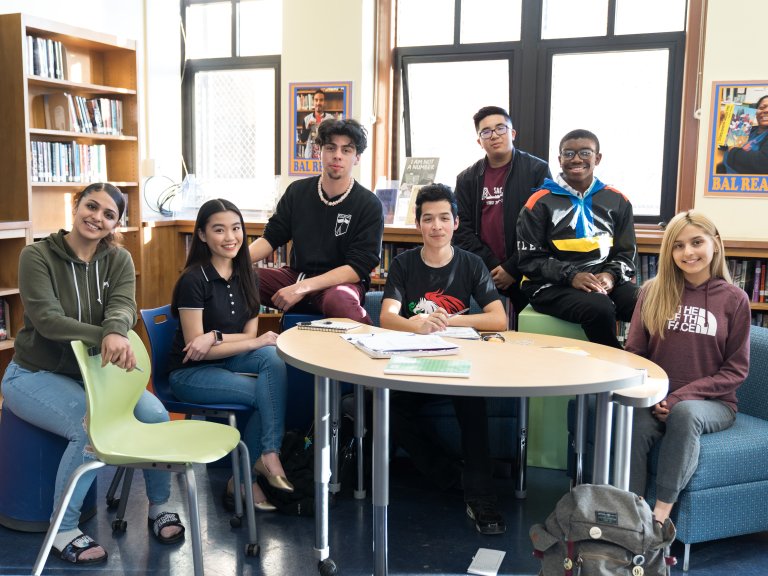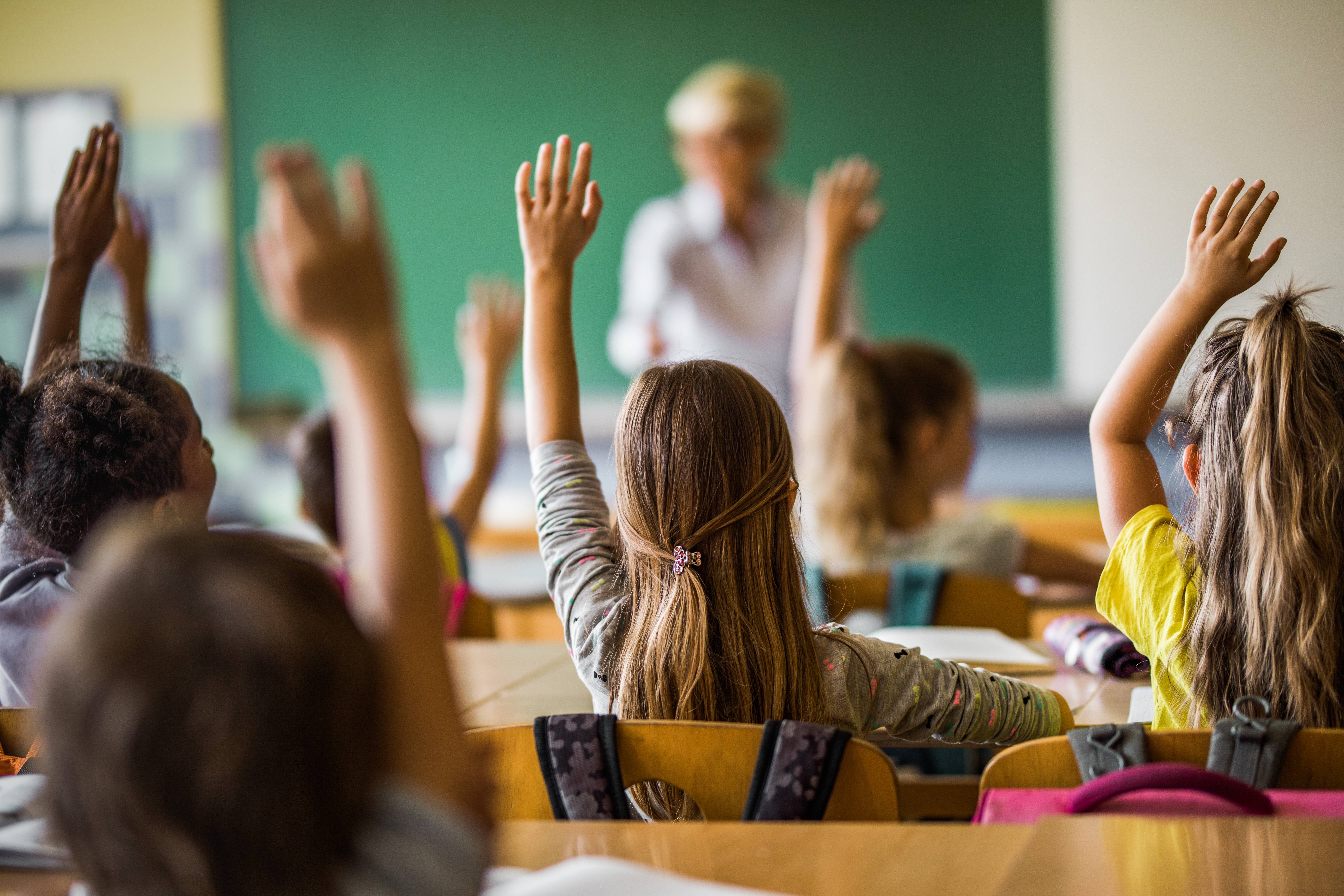Join Us: Events and Campaigns to Save Temecula Schools
Join Us: Events and Campaigns to Save Temecula Schools
Blog Article
Just How Schools Play a Vital Role in Shaping Future Leaders and Pioneers
Colleges are instrumental fit future leaders and innovators through the growing of important reasoning, creative thinking, and collaboration. By incorporating project-based knowing and interdisciplinary studies, schools challenge pupils to examine and synthesize complex information. Educators act as mentors, guiding pupils and supporting their potential, while after-school activities additionally create leadership skills and strength. This dynamic setting not only concentrates on specific strengths however likewise emphasizes the value of team effort, vital for browsing tomorrow's obstacles. Just how specifically do these components interplay to develop a durable foundation for future success?
Promoting Important Thinking
In today's swiftly advancing globe, fostering important believing within universities has become critical. As society faces increasingly complicated global challenges, the capability to analyze, examine, and manufacture details is important. Schools play a critical role in establishing these skills, preparing pupils to navigate and resolve multifaceted problems with informed, reasoned decisions.
To cultivate critical reasoning, teachers employ different pedagogical techniques that motivate energetic knowing and intellectual interaction. Classroom conversations, problem-based learning, and Socratic examining contribute in advertising reflective and logical idea procedures. By testing students to question presumptions and think about multiple perspectives, these methods make sure a much deeper understanding of subject matter past memorizing memorization.
Additionally, incorporating vital thinking across the educational program enhances its value and applicability in diverse contexts. Subjects such as mathematics, science, history, and literature each offer one-of-a-kind chances to create pupils' important professors. For instance, examining historic occasions needs understanding and examining resources context, while clinical query needs rigorous hypothesis screening and evidence-based thinking.
Ultimately, instilling critical thinking skills in pupils furnishes them with the cognitive tools required for long-lasting knowing and versatility. It is via this foundational proficiency that future leaders will be able to introduce, address troubles, and add meaningfully to society.
Motivating Imagination
Welcoming creative thinking within instructional structures galvanizes students to believe beyond standard borders and discover ingenious options. By integrating artistic ventures and innovative thinking exercises into the curriculum, schools cultivate an atmosphere where creativity and imaginative thought are valued. This method not only enhances the educational experience yet likewise outfits pupils with the ability to take on real-world obstacles in novel means.
School can foster creative thinking via varied means such as project-based learning, interdisciplinary research studies, and the unification of arts and technology. Project-based discovering, for example, motivates students to apply their understanding in useful, typically collaborative, tasks that demand inventive analytical skills. Interdisciplinary studies allow students to attract connections in between different subjects, therefore widening their point of views and enhancing their innovative abilities.
Additionally, providing students with opportunities to involve with emerging modern technologies, such as coding and digital design, even more nurtures their imaginative potential. These tasks motivate students to experiment, stop working, and iterate, which are important parts of the innovative process (Save Temecula Schools). By keeping a supportive environment where experimentation is encouraged, schools can make certain that trainees develop the confidence to pursue ingenious concepts
Basically, supporting creative thinking in educational settings is essential for shaping future leaders and innovators efficient in attending to complex international problems with resourcefulness.
Encouraging Cooperation

Executing group-based learning components and cooperative tasks allows students to experience the characteristics of teamwork firsthand. This not just prepares them for the collective nature of modern-day offices but additionally supports leadership high qualities as they often need to tackle functions such as job supervisors or team coordinators. In addition, collaboration in the class can break down social obstacles and advertise inclusivity, guaranteeing that each trainee feels use this link valued and listened to.
Moreover, integrating technology can better sustain joint initiatives. Devices like shared interactive platforms and electronic offices enable pupils to function with each other successfully, even outside the class. As trainees create these joint abilities, they are much better outfitted to deal with complex difficulties and introduce, preparing for their future duties as leaders and trendsetters.
Duty of Teachers as Mentors

Mentorship entails personalized attention, where instructors identify and nurture individual staminas and address weaknesses. Save Temecula Schools. Via one-on-one communications, educators can customize their advice and assistance to fulfill each student's special requirements, cultivating a sense of confidence and resilience. This individualized approach grows a growth way of thinking, encouraging trainees to check out failings as possibilities for finding out and growth
In addition, educators act as good example, demonstrating the worths of perseverance, compassion, and honesty. Their perspectives and actions supply a plan for trainees to imitate, instilling a feeling of honest obligation and social understanding. By creating a inclusive and encouraging class atmosphere, educators enable students to create social abilities that are crucial for reliable leadership.
In significance, the mentorship supplied by instructors lays a foundational structure for the advancement of future leaders, equipping them with the knowledge, abilities, and values needed to succeed in an ever-evolving world.
Influence of Extracurricular Tasks
When incorporated properly into the instructional structure, after-school activities significantly boost trainee advancement and leadership potential. These tasks offer trainees with opportunities to discover passions past the traditional curriculum, cultivating a well-rounded capability. Clubs, sporting activities teams, and arts programs cultivate important qualities such as team check this site out effort, time administration, and resilience. Involvement in these tasks frequently calls for students to tackle responsibilities, therefore nurturing their leadership capabilities.
Trainees engaged in dramatization, songs, or dispute clubs discover to believe critically and approach troubles from varied viewpoints. By working together with peers from different histories, students additionally create empathy and interaction abilities, necessary characteristics for future leaders.
Research study shows that trainees involved in such programs have a tendency to have higher grades and better presence records. Hence, schools that focus on a balanced method to education and learning, integrating robust extracurricular programs, are much more likely to generate innovators and leaders geared up to fulfill the challenges of the future.

Verdict
To conclude, colleges significantly shape future leaders and pioneers by nurturing critical thinking, creative thinking, and collaboration among pupils. Engaging pedagogical approaches such as project-based learning and interdisciplinary research studies play a crucial duty in this development. Educators, serving as coaches, give crucial support and assistance, more tips here while extracurricular activities further boost management potential and resilience. By cultivating a helpful atmosphere that values specific staminas and teamwork, institutions gear up trainees with the necessary abilities to browse future obstacles and drive technology.
As trainees create these joint abilities, they are better equipped to deal with complex challenges and innovate, laying the foundation for their future functions as leaders and pioneers.
By cultivating essential reasoning and analytical skills, instructors help students navigate complex obstacles, preparing them for management roles in various areas.
By teaming up with peers from various histories, students additionally establish empathy and communication abilities, necessary characteristics for future leaders.
In verdict, colleges substantially shape future leaders and trendsetters by supporting crucial reasoning, creative thinking, and cooperation among pupils. By promoting a supportive environment that values private strengths and synergy, schools gear up pupils with the necessary abilities to browse future challenges and drive advancement.
Report this page